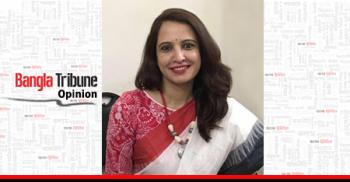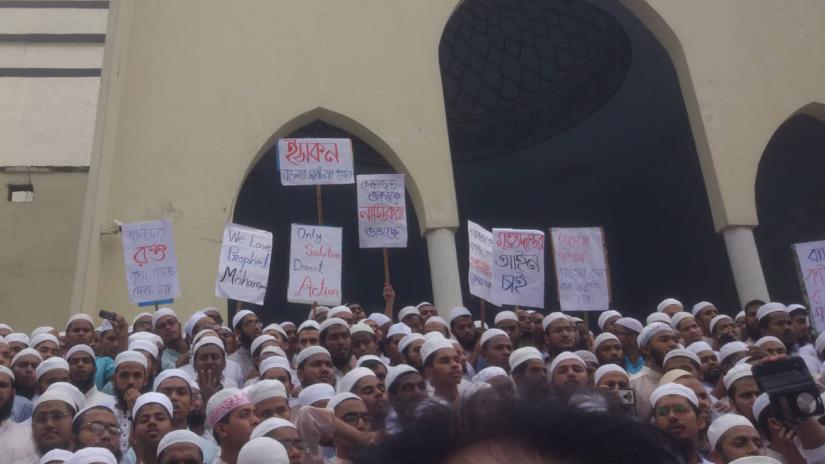 To understand whether human rights and freedom of religion do have a religious origin it is necessary to briefly look at what is meant by human rights and freedom of religion. Human rights are rights inherent to all human beings, regardless of race, sex, nationality, ethnicity, language, religion, or any other consideration. Human rights include the right to life and liberty, freedom from slavery and torture, freedom of opinion and expression, the right to work and education, and many more. Everyone is entitled to these rights equally.
To understand whether human rights and freedom of religion do have a religious origin it is necessary to briefly look at what is meant by human rights and freedom of religion. Human rights are rights inherent to all human beings, regardless of race, sex, nationality, ethnicity, language, religion, or any other consideration. Human rights include the right to life and liberty, freedom from slavery and torture, freedom of opinion and expression, the right to work and education, and many more. Everyone is entitled to these rights equally.
On the other hand, freedom of religion is a principle that supports the freedom of an individual or community, in public or private, to pursue any religion or belief in teaching, practice, worship, observance and propagation which also includes the freedom to change one's religion.
I will discuss Islam with regard to two fundamental aspects of human rights: the concept of human rights and religious freedom. No human being is worthy if he is denied dignity and freedom. Lack of human dignity, equality and freedom are acceptable neither in religious nor in empirical spheres. Religion provides a theory for human rights within the context of a moral vision and religious thoughts on human duties. This contributes to the development and promotion of human rights. Taking these into consideration we can say that it is very much possible to talk about the religious interpretation of human rights and freedom of religion. The nourishment of culture, society or moral growth is not possible without freedom of conscience. All religions came into existence as the great prophets and thinkers used their extraordinary intellectual and spiritual capacities to challenge stagnating theological dogmas of earlier faiths. The founder of Islam Prophet Mohammad (PBUH), like all other great prophets and philosophers, was deeply dissatisfied with the social injustices of his time. He thought of human dignity, equality, social order and fearlessly exercised his freedom to criticise the religious establishment of an earlier faith-based tradition of Arabia. Hence he opposed, even he was severely persecuted by people, but without exercising his freedom of conscience he would not have been able to voice his innate humanity.
The nourishment of culture, society or moral growth is not possible without freedom of conscience. All religions came into existence as the great prophets and thinkers used their extraordinary intellectual and spiritual capacities to challenge stagnating theological dogmas of earlier faiths. The founder of Islam Prophet Mohammad (PBUH), like all other great prophets and philosophers, was deeply dissatisfied with the social injustices of his time. He thought of human dignity, equality, social order and fearlessly exercised his freedom to criticise the religious establishment of an earlier faith-based tradition of Arabia. Hence he opposed, even he was severely persecuted by people, but without exercising his freedom of conscience he would not have been able to voice his innate humanity.
What is the religion for most of us? Religion is a set of values, rituals, dogmas, doctrine, customs and traditions which defines our way of life. Values like truth, love, non-violence, justice, peace, human dignity, equality and compassion are permanent values. These belong to the core teachings of all religions, including Islam. Also, there are metaphysical aspects of religion, which deal with world hereafter, accountability to God, Day of Judgment etc. For Islamic faith, the Creator, Allah, is worshipped and respected as the One who endowed the human being with reason and conscience. Humans as superior beings with a conscience are obliged to fight for justice, peace, and respect other human beings irrespective of gender or race. Islam recognizes and promotes basic human rights like the right to life and liberty, freedom from slavery and torture, freedom of conscience, right to education etc. According to Islam, everyone is entitled to these rights equally.
Islam like other revealed religions promotes peace, justice, humanity and preach non-violence. It is the followers who violate the injunctions of Islam and create chaos in the society. If the believers could practice Islam in its true spirit, there would be no need to spell out the basic human rights or freedom of religion. Another important issue is while Islamic religious scriptures are fixed, it varies in its relationship to human rights which is closely associated with its interpretation. Although the broad thrust of the Quran and Hadith supports human dignity and religious liberty, traditionally many parts of these texts have been interpreted differently in different societies. For example, the interpretations of human rights and freedom of religion principles in Middle Eastern countries differ substantially from those found in South Asian countries. The differences in human rights practices in different countries indicate that what matters is not religion itself, but rather religion’s interpretation, social norms and culture. Tolerant, critical and historical readings of the Quran can bring Islam closer to contemporary universal human rights principles.
A Barrister-at-Law, Farzana Mahmood practices at the Supreme Court of Bangladesh. She also serves as the executive director of rights body, Bangladesh Manobadhikar O Poribesh Andolon Foundation.
 Opinion
Opinion
30721 hour(s) 2 minute(s) ago ;
Evening 07:56 ; Thursday ; Apr 18, 2024
Religious interpretation of human rights and freedom of religion
Send
Farzana Mahmood
Published : 23:20, Oct 22, 2019 | Updated : 15:01, Oct 23, 2019
Published : 23:20, Oct 22, 2019 | Updated : 15:01, Oct 23, 2019
0 ...0 ...
/ab/hb/
Topics: Top Stories
***The opinions, beliefs and viewpoints expressed in this article are those of the author and do not reflect the opinions and views of Bangla Tribune.
- KOICA donates medical supplies to BSMMU
- 5 more flights to take back British nationals to London
- Covid19: Rajarbagh, Mohammadpur worst affected
- Momen joins UN solidarity song over COVID-19 combat
- Covid-19: OIC to hold special meeting
- WFP begins food distribution in Cox’s Bazar
- WFP begins food distribution in Cox’s Bazar
- 290 return home to Australia
- Third charter flight for US citizens to return home
- Dhaka proposes to postpone D8 Summit
Unauthorized use of news, image, information, etc published by Bangla Tribune is punishable by copyright law. Appropriate legal steps will be taken by the management against any person or body that infringes those laws.
Bangla Tribune is one of the most revered online newspapers in Bangladesh, due to its reputation of neutral coverage and incisive analysis.
F R Tower, 8/C Panthapath, Shukrabad, Dhaka-1207 | Phone: 58151324; 58151326, Fax: 58151329 | Mob: 01730794527, 01730794528


